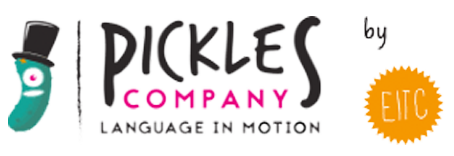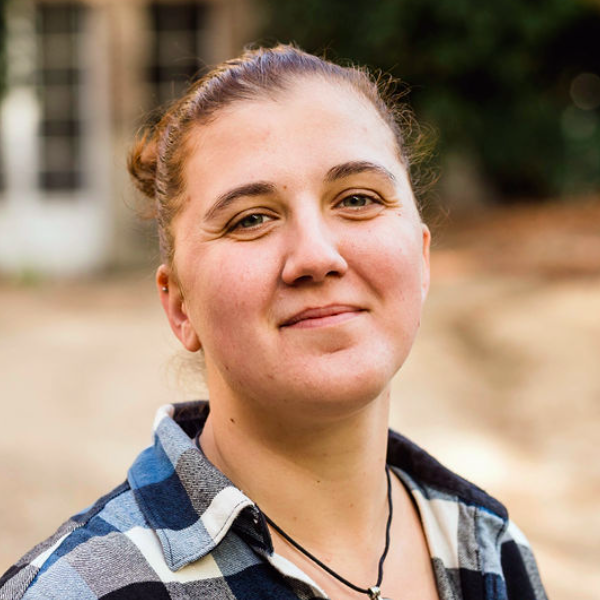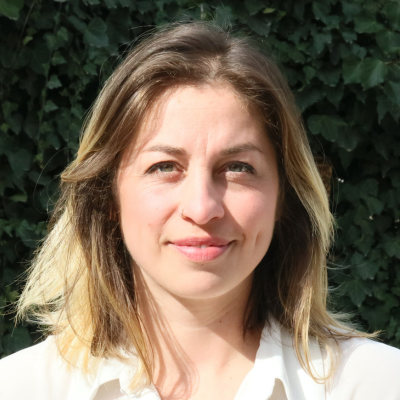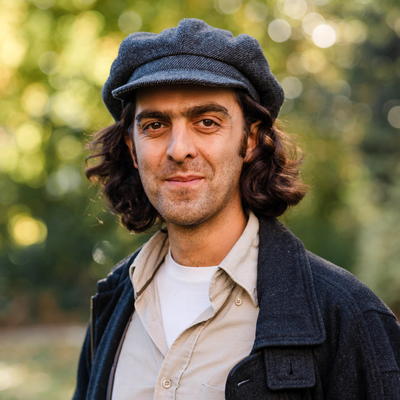ABOUT US
We first ventured into the world of Theatre In Education in 1998 when we began working with the Irish company French Theatre for Schools. For over a decade, Xavier Hock performed as a native French speaker for this company while Christine Béziat organised their tours throughout Ireland and Northern Ireland.
After seeing the phenomenal success of these plays in Irish schools the desire to take this kind of performance to France and Belgium was born. In 2007, Xavier and Christine created the Emerald Isle Theatre Company (EITC) and their first tour on the continent hit the road with performances in Brussels, Wallonia and the South of France.
Since 2010, the EITC has performed all over France, Luxembourg, Belgium, Spain and Italy. Now creating and performing under the new name of Pickles by EITC,
we still love sharing our passion for theatre and language with our main message: learning is fun.
PRODUCTION TEAM
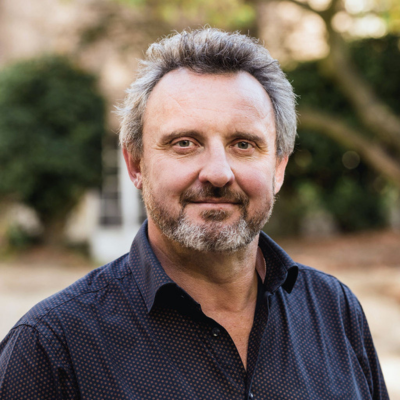
XAVIER HOCK
Artistic Director – Writer
XAVIER HOCK • Artistic director - Writer
Co-founder of Pickles by EITC with Christine Beziat.
Trained social worker (Cardijn, Louvain-la-Neuve, Belgium).
After having travelled all across Ireland from 1998 to 2008 as an actor in school tours for students learning French, Xavier decided to share his knowledge and experience on the continent. And so, as a writer and director, he now creates english speaking shows for students learning english as a foreign language.
“In my role as a director, it’s a joy to be able to follow our teams of actors daily, having pushed them so hard during the rehearsals :) and what a joy it is to see your reactions, our dear audience! What else? Oh yes, I love a good beer, perfectly chilled, after a long day of walking or snowboarding. I also love swimming in ice cold water (from the beaches of Donegal to the Saint Lawrence river) but, some things that I can’t stand are flat tyres, sweetbread (even if they are nothing alike, I still don’t like them) and not being able to control the situation.
Dreams, I’ve got plenty… but I never remember them when I wake up in the morning.”
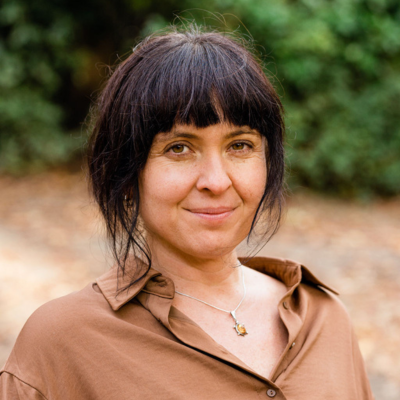
CHRISTINE BÉZIAT
Tour coordinator – Writer
CHRISTINE BÉZIAT • Tour coordinator - Writer
Co-founder of Pickles by EITC with Xavier Hock.
Trained trilingual secretary assistant (Ozenne, Toulouse, France)
She’s the one who organises the tour’s planning for our actors, an impossible puzzle that only she knows the answer to. She’s in charge of the tour, our communication…
Originally from Toulouse, Christine lived in Dublin between 2002 and 2009. She’s worked in banks, as a riding teacher before finally dipping her toe into the world of Theatre in Education. Her first experience was with FTFS and then in 2008, she created Pickles by EITC with Xavier.
“My dream would be to travel the world and to be able to speak multiple rare languages. I love the sun, a Bach prelude, a galop in a field, Ludwig von 88, a good book, time with friends, blueberries… Injustice drives me mad, disrespect makes my hair stand on end and as for meat, I’ve been disgusted by it forever.”
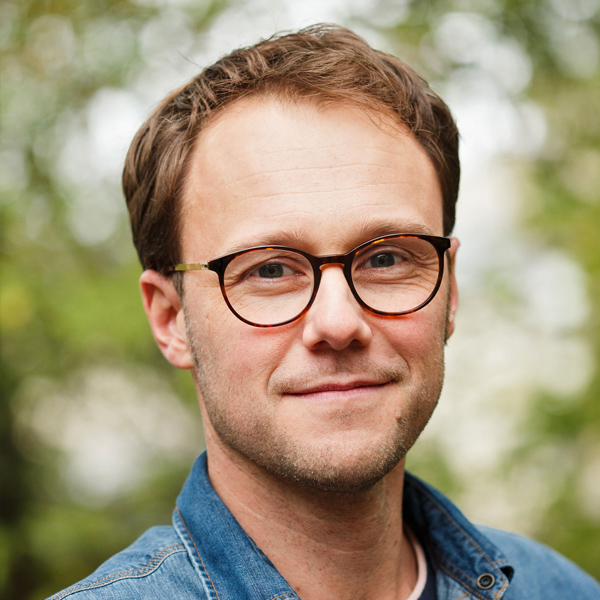
ARNAUD CRAMOISAN
Artistic Director – Writer
ARNAUD CRAMOISAN • Director - Writer
I love it when a plan comes together. I love packing my back, it’s always the promise of new adventures, new encounters. I love Monty Python and a cold beer, even if these two have nothing to do with each other.
I hate the smell of body spray in a rehearsal room, “endives cuites” and I hate it when actors ask me “what’s that?” when talking about “endives cuites” it’s impossible to translate!! Try and see what happens, all you need is a native english speaker and a plate of “endives cuites”. Let it rest for 5 minutes and serve hot.
My dream: To travel the world on skates. Or without.

MOLLIE
KEANE
Facilitator – Acting coach – Assistant director
MOLLIE KEANE • Facilitator - Acting coach - Assistant director
Starting my journey in the East of London in a place known as Walthamstow, passing by East 15 acting school, across Europe and ending up in Paris where I now live, I have always loved the way that theatre crosses borders. Whether that be through language, culture, class or generation. Theatre has a power like no other. And that is what I love about working with Pickles, they explore this power to its full extent!
Having worked with Pickles at 21 as an actress, I have now been working with and training the new actors since 2016. Here’s to more adventures!
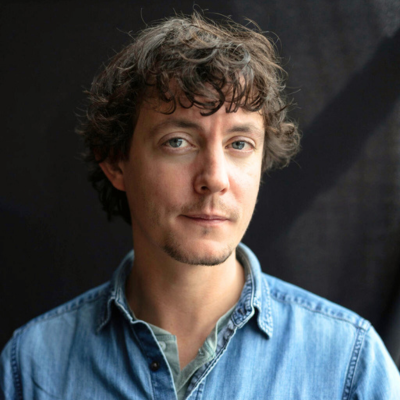
LOÏC
PETIT
Artistic Director – Writer
LOÏC PETIT • Artistic director - Writer
An actor at heart, I loved the idea of hitting the road and showing our beautiful country to our Irish friends.
To go on an adventure together, for better or for worse. And so we happily shout at the cars in front of us that aren’t moving, we sing old classics that come on the radio and we let ourselves be swept away by the countryside that passes beside us. Well… we do all that when we’re not late, otherwise, we race down the motorway!
Along with all that, I love old french films and playing cards, but I don’t tell the actors that when we play poker and the winner gets to choose the time when they can use the bathroom!
I made a deal with the actors, they teach me the secrets of Shakespeare and I reveal the wonders of Molière to them. And who knows, maybe one day it’ll be me hitting Irish roads to share a bit of French culture with the Irish.

CHARLENRY TRICOIRE
Artistic Director
CHARLENRY TRICOIRE • Artistic director
French actor for the last 10 years, I’ve already traveled almost all the french roads, from north to south and east to west but always for shows in french.
From now on I would like to expand my career internationally. Thus, the idea of practicing the English language on a daily basis with the PICKLES Company immediately appealed to me.
I am always eager to live new experiences and I am looking forward to being on the road with these young English speaking native actors.

MARTIN MAGUIRE
Casting Director
MARTIN MAGUIRE • Casting Director
Martin Maguire is a leading Irish playwright and actor.
He has taught for the Gaiety School of Acting since 1995. As an actor he has worked in most of Ireland’s main theatres as well as on film and television productions broadcast nationally and internationally. He has written extensively for stage, television and radio as well as directing several theatre productions in Ireland and abroad.
TOUR MANAGERS

FRANÇOIS JAULIN
Tour manager
FRANÇOIS JAULIN • Tour manager
Actor, director… and now Tour manager… meeting Pickles is very important in my career…
Accompanying the actors, setting up the stage technically and resolving last minute problems is a stimulating and fulfilling job…
Now, I am no stranger to the Belgian and French roads… nor am I a stranger to all their different beers…
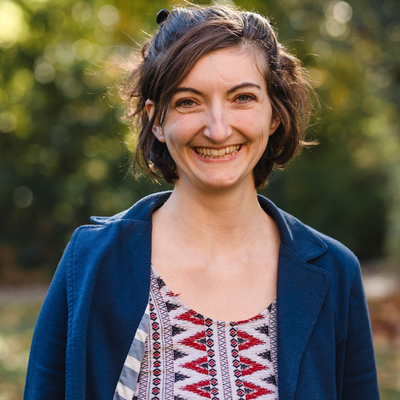
LEA HOSTACHY
Tour manager
LEA HOSTACHY • Tour manager
French actor for the last 10 years, I’ve already traveled almost all the French roads, from north to south and east to west but always for shows in French.
From now on I would like to expand my career internationally. Thus, the idea of practicing the English language on a daily basis with the PICKLES Company immediately appealed to me.
I am always eager to live new experiences and I am looking forward to being on the road with these young English speaking native actors.
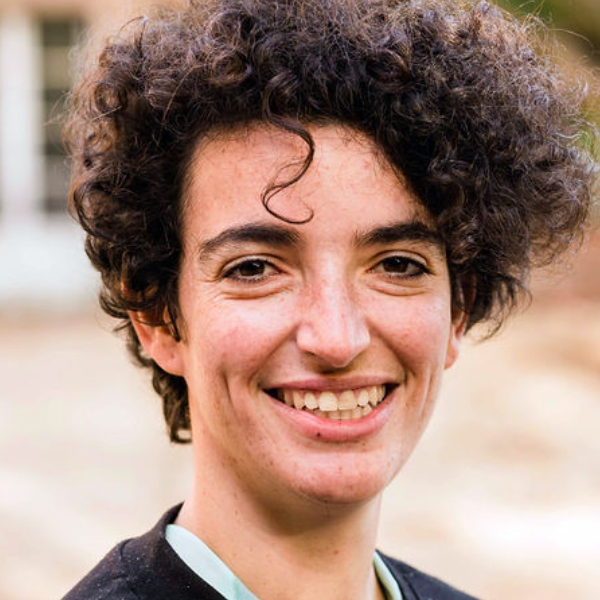
MARION BRUYERE
Tour manager
MARION BRUYERE • Tour manager
French actor for the last 10 years, I’ve already traveled almost all the French roads, from north to south and east to west but always for shows in French.
From now on I would like to expand my career internationally. Thus, the idea of practicing the English language on a daily basis with the PICKLES Company immediately appealed to me.
I am always eager to live new experiences and I am looking forward to being on the road with these young English speaking native actors.
NICOLAS BEAUDRY
Tour manager
NICOLAS BEAUDRY • Tour manager
Hi, my name’s Nicolas I’m a tour manager from Paris, I’ve been on the road for different shows as stagehands / stage manager since 2013.
I love meeting new people and cultures, practicing languages so Pickles is a great opportunity for me.
As a beekeeper in my spare time, I’m very close to nature.
CHARLENRY TRICOIRE
Tour Manager
CHARLENRY TRICOIRE • Tour manager
French actor for the last 10 years, I’ve already traveled almost all the french roads, from north to south and east to west but always for shows in french.
From now on I would like to expand my career internationally. Thus, the idea of practicing the English language on a daily basis with the PICKLES Company immediately appealed to me.
I am always eager to live new experiences and I am looking forward to being on the road with these young English speaking native actors.
LUCILE RICHEM
Tour Manager
LUCILE RICHEM • Tour Manager
I’m delighted to get to know and accompany new actors in the Pickles adventure!
I myself am a circus performer, physical theater actress and stage manager. So.. let’s hit the road together !
ACTORS

Katherine DODGE
Actress
Katherine DODGE
Lindsey WHITE
Actress
Lindsey WHITE
Hey y’all, I’m Lindsey. I’m from the southern United States. I studied film and theatre in university, and soon after, I moved to South Korea to teach English. While there, I continued writing and acting with expat theatre groups. I also discovered a love for working with students and traveling the world. I’m super excited to continue my adventures in Europe. In my free time, I’m probably trying to find a jazz band to watch or a comedy show to see.

Diego MURILLO
Actor
Diego MURILLO
Diego Murillo is an American Actor from the distant faraway land of New Jersey.
After taking part in his first play at the age of 12, he decided this is what he wanted to do with his life! He graduated from Shenandoah University with his BFA in Acting in 2023, and has since been taking part in National Tours for an American touring theater company. When he’s not acting, you can find him hiking in the forest, practicing guitar, or learning languages.
He is absolutely ecstatic to be taking part in his first European tour, and looks forward to performing near you!
Madison Gunderson
Actress
Madison GUNDERSON
Madison is an American, freelance actor originally from Rockton, IL. She studied for a BFA in Acting for Stage and Screen at the University of Mississippi. While she has done U.S. children’s theatre tours, this is her first international tour, and she is so excited to be joining the Pickles team! Madison enjoys travel, flowers, and meeting new people, and she is so grateful for this opportunity to pursue her dreams!
Maddie ATHEARN
Actress
Maddie ATHEARN
Hey! I’m Maddie, an American actor from Niceville, Florida. I recently graduated from Samford University with a BFA in Musical Theatre.
Ever since my grandpa built me a little puppet theatre when I was five, I knew I had to connect with people through stories and play for the rest of my life. Performing and traveling have always been dreams of mine, so being part of Pickles truly feels like a dream come true!
I love writing and directing just as much as performing. Outside of theatre, I’m probably out on a run, thrifting, or staring at trees as I wander around in search of the best coffee in town. Let’s hit the road!

Isabella FOX
Actress
Isabella FOX
Isabella is originally from Oregon, but currently resides in Minnesota where she graduated with her BFA in Acting from Minnesota State University, Mankato. She has been involved with the theatre since her primary years and is thrilled to be able to make something she loves into a career.
Traveling is her second love and having the opportunity to travel the world while performing theatre with Pickles by EITC will be something she is forever grateful for. In her free time on tour she hopes to eat as much as possible and experience everything each town has to offer!
Michelle BLAIR
Actress
Michelle BLAIR
Michelle-Rae Westbury is a 26 year old actress from Nottinghamshire who enjoys travelling and working with children. Last year she performed in a touring Pantomime of Cinderella across London where she portrayed the role of the ugly sister and Prince. She also performed in a theatre tour across Germany to help students learn English through theatre. She enjoys multi-rolling and using theatre to educate young people in a fun and engaging way. Her hobbies are reading and Pole Fitness. She is a Rae of sunshine who can’t wait to start touring with Pickles, explore France and get the show on the road!

Christina KULOW
Actress
Christina KULOW
The witty blonde badass from Boston, Massachusetts. This Scorpio is an avid stage combatant with a collection of eight swords that grows constantly. Christina has always been the fashionista of her family; she is just as much a costume designer as she is a performer, and works professionally in both departments as often as she can. Known as “Tina” to those closest to her, Christina can usually be found at a Renaissance Faire, working as a writing tutor, or putting the finishing touches on a new sketch or painting.
Ian MELAMED
Actor
Ian MELAMED
Ian is a New York based actor, musician, and filmmaker. He is thrilled to be embarking on his first European tour with Pickles by EITC.
Ian cut his teeth acting in his high school’s Shakespeare company, and later earned a degree in theatre from the University of Southern California. He’s best known for his independent feature film Serov, which he produced during college with his friends, and has garnered over half a million views on YouTube.
When he’s not on stage or on set, Ian enjoys writing music (he plays cello and guitar), reading, and playing Dungeons & Dragons with friends.
Sophie SHIELDS
Actress
Yvette DUNHAM
Actress
Yvette DUNHAM
Hi! My name is Yvette, and I’m an actor from Canada, now living in Manchester, UK. I discovered my love for acting when I saw a production of Grease at the age of five. I remember thinking, “I want to make people feel the way I feel right now.” So I set out to do just that. Since then, I’ve explored nearly every performance style under the sun, and as long as I have acting, I’m as happy as can be!
I graduated from the BA Acting course at the Arden School of Theatre in 2025 and am thrilled to already be touring! Travelling has always been a passion of
mine, so I feel incredibly grateful to be able to combine it with performing. I’m incredibly excited for the opportunity to work with Pickles by EITC.
In my free time, you’ll find me reading a book, grabbing a coffee, or at the theatre.
Skye FARRELL
Actor
Skye FARRELL
Hi! My name is Skye, and I am an actor/musician originally from Seattle. I graduated with my acting degree from the Institute of the Arts Barcelona a few years ago, and I am beyond excited to return to Europe with Pickles. Since graduating, I have been seen onstage at theatres around Seattle doing everything from plays, musicals, immersive pieces, and even other educational tours. When I’m not acting I travel as much as possible, I love to read, and I spend lots of time at karaoke and with my cat, Babushka.
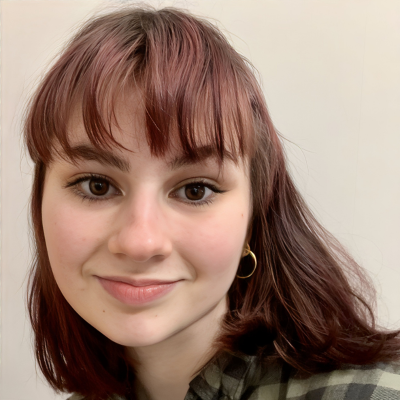
Abigail KAYE
Actress
Abigail KAYE
Hi I’m Abby and I could not be more excited and thrilled to join the pickles tour! I’m an American
actor originally from the Maine/New England area, where I attended the University of New
Hampshire double majoring in musical theater and psychology. Theater and education are two
of my biggest passions and I cannot wait to share that fervor in new amazing places with new
amazing people!
See you on tour!!!
Alexander BARLOW
Actor
Alexander BARLOW
Hey, my name is Alexander Barlow (Or just Alex I’m not part of the royal family) and I’m from Leeds in the north of England. I’m so excited to be starting my second season with Pickles! I loved the first year so much that I had to come back and do it all again and meet more amazing students across Europe! One of the main qualities of this work that brought me back is seeing the fun and play that is created, and the ability of student actors (both in workshops and shows) brought to the surface while also speaking a different language (I would never have been able to do that!). I can’t wait to get back on the road with new shows! We will see you soon!
Tom JACQUES-SMITH
Actor
Tom JACQUES-SMITH
Hi there my name is Tom, an actor from the historic city of York in North Yorkshire, England. I have been an aspiring Actor for the last seven years, recently graduating from Leeds Beckett University in Performing Arts. I love meeting new people, exploring new places, and have a passion for teaching and performing to different audiences. I have joined the Pickles family as it is the perfect step in my acting career. I look forward to meeting each and everyone of you on this year’s tour.
See you all very soon!
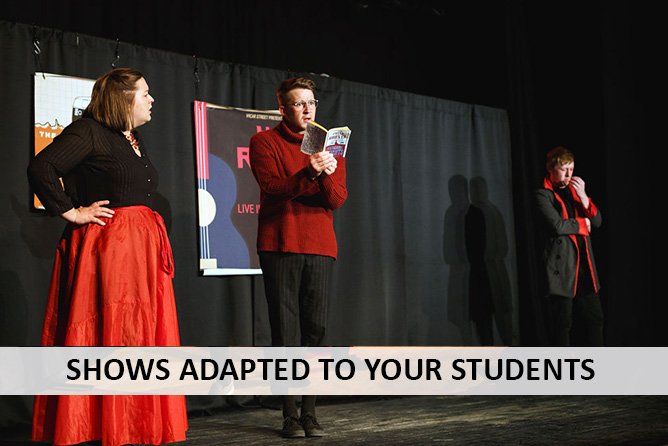
Our plays have been specially created for pupils learning English as a foreign language. The actors speak clearly and the plays are written to include a lot of repetition to make it easy for students to understand what is happening.
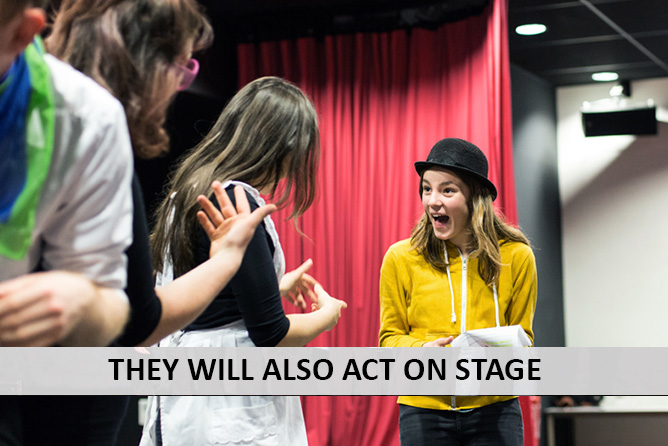
For each show we create a few small roles for students to perform. There are also other moments of interaction during the play that the whole audience can take part in. Language level isn’t a block for students to participate.
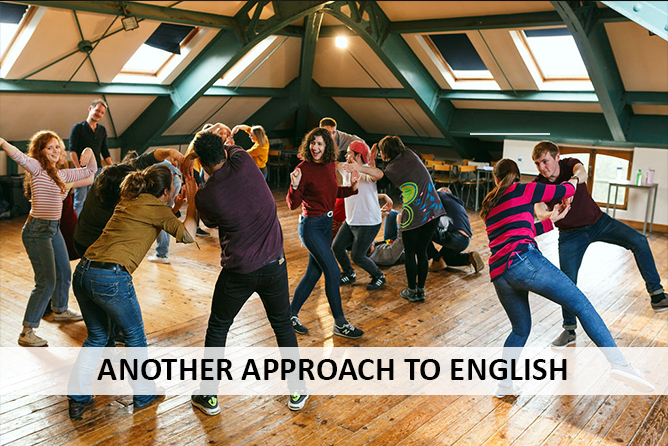
Each workshop is an exploration led by native English-speaking actors and fuelled by the dynamics of the group: exploration is encouraged, the language barrier is broken and everything becomes a reason to play and to improvise. Pure fun!

